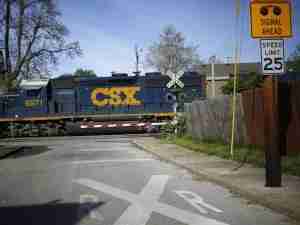Northeast Foods to begin using GAIN CNG
posted by AJOT | Sep 09 2014 at 04:28 PM | Intermodal
Northeast Foods has signed an agreement with U.S. Oil for a new GAIN® Clean Fuel Compressed Natural Gas (CNG) station in Baltimore, Maryland.
Located at the intersection of I-95 and I-895, the station will service Northeast Foods and H&S Bakery's regional distribution routes for their fresh bakery products. A family-owned company, Northeast Foods' service area includes twenty-three states and employs more than 2,000 people. They have been the bakery provider for McDonald's and other fast-food restaurants since the 1960's.
The partnership allows Northeast Foods to continue their commitment to a corporate environmental policy and stewardship of the environment. Chuck Paterakis, vice president, transportation and logistics for Northeast Foods, cited his company's willingness to invest in CNG. "Northeast Foods is proud to partner with U.S. Oil as we transition a significant portion of our fleet to CNG," said Paterakis. Northeast Foods will initially convert twenty-five Class 8 tractors to run on CNG in the Baltimore market. "We selected U.S. Oil as our partner based on the company's ability to meet our customers' extremely high operational and environmental standards in a manner that strategically positions our company to benefit from the future growth of CNG in the transportation industry," Paterakis explained.
One of the main advantages for fleets converting to CNG is that it is a cost-effective alternative to diesel fuel, offering a savings of more than $2 per gallon equivalent. “In addition to the cost savings, GNG has lower carbon emissions which is better for the environment,” said GAIN® Clean Fuel’s General Manager Bill Renz. “For companies like Northeast Foods, it fits perfectly into the environmental policies they have for their business.”
U.S. Oil now has 32 GAIN® Clean Fuel stations operating or under construction throughout the United States. The company is in the midst of a national expansion of its network of compressed natural gas (CNG) stations, offering regional and national carriers a lower-cost, more environmentally-friendly fueling option for their fleets.
Another advantage of CNG is that it’s a domestically produced product, which insulates it from global influences that create price volatility in other fuels such as diesel. “Fleets that are making the decision to convert to CNG are doing it for two reasons. One, because it's more efficient from an environmental perspective, and two, because it's a smart business decision,” Renz said. “Those companies that don’t begin to convert their fleets to CNG will have to catch up down the road.”







